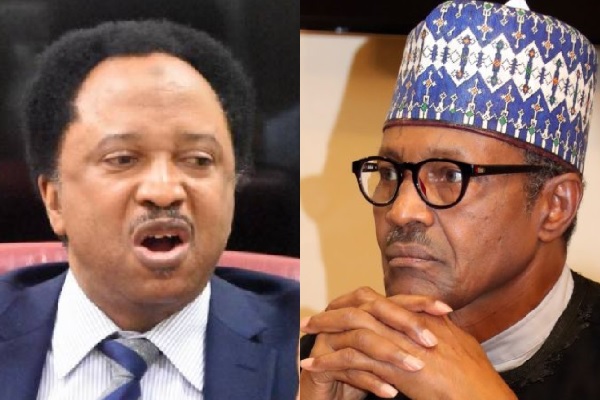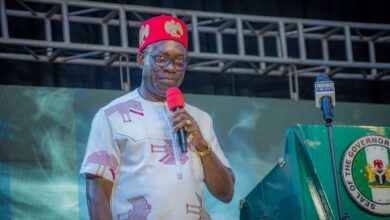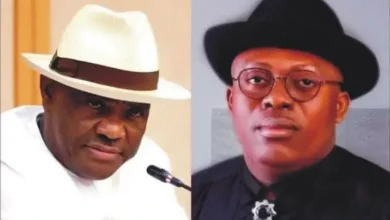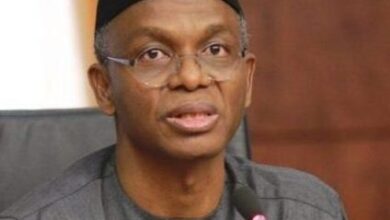Sani critiques Northern silence during Buhari’s administration over nepotism

Former Senator Shehu Sani recently sparked national debate during an appearance on Channels Television’s “Politics Today.”
He directly linked Northern Nigerians’ silence during Buhari’s presidency to widespread nepotism in political appointments. His comments have reignited discussions about regional favoritism in Nigeria’s governance structure.
Sani specifically noted how Buhari’s administration disproportionately favored Katsina State natives in key positions. He cited appointments like the SSS and NIA directors-general, both from Katsina, as clear examples. The former senator also mentioned similar patterns in immigration, customs, and military leadership roles.

“These appointments went unchallenged because beneficiaries protected the system,” Sani asserted during the interview. He contrasted this with current Southern outcries against President Tinubu’s appointments, suggesting different regional responses to perceived imbalances. His analysis implies Northern complacency stemmed from enjoying privileged access to power.
The timing of Sani’s remarks coincides with growing national conversations about equitable representation. His observations challenge Nigerians to examine how political patronage affects national unity. These comments may influence upcoming political strategies as regions reassess their engagement with federal power structures.
Political analysts suggest Sani’s intervention could reshape public discourse on meritocracy versus regional loyalty. Meanwhile, civil society groups are calling for constitutional reforms to ensure fair representation. The debate continues evolving as more citizens demand transparent appointment processes nationwide.
This development highlights Nigeria’s ongoing struggle to balance regional interests with national cohesion. As elections approach, such discussions will likely intensify across political platforms. Sani’s bold critique serves as a catalyst for deeper examination of Nigeria’s power-sharing mechanisms.
The former senator’s statements have drawn both support and criticism from various quarters. Some praise his courage while others question his timing and motives. Nevertheless, his intervention has successfully brought these sensitive issues back into mainstream political conversation.
Moving forward, these revelations may pressure current leaders to demonstrate greater inclusivity in governance. Many Nigerians now watch closely to see if rhetoric about equity will translate into concrete policy changes. The nation’s political landscape continues evolving amid these crucial debates about representation and fairness.
Ultimately, Sani’s commentary underscores the delicate balance between regional loyalty and national progress. His remarks challenge citizens and leaders alike to prioritize merit over birthplace when building Nigeria’s future. This conversation remains critical as the country strives for unity amidst its celebrated diversity.
The ongoing dialogue reflects Nigeria’s complex journey toward equitable governance. As more voices join the discussion, the nation inches closer to resolving its longstanding representation challenges. Such frank exchanges ultimately strengthen democracy by addressing uncomfortable truths head-on.
Observers believe this moment could mark a turning point in how Nigerians approach federal appointments. The coming months will reveal whether these discussions lead to meaningful reforms or remain merely academic exercises. Either way, Sani has successfully spotlighted a crucial governance issue demanding resolution.
This developing story continues shaping political narratives across Nigeria’s diverse regions. Its implications will likely influence both policy decisions and electoral strategies in the foreseeable future. The nation watches as this important conversation unfolds across media platforms and political circles.
As Nigeria grapples with these revelations, citizens increasingly demand accountability from their leaders. The collective hope remains that such discussions will translate into more inclusive governance practices nationwide. Only time will tell if this marks genuine progress or another missed opportunity for reform.
The former senator’s intervention has undoubtedly enriched Nigeria’s democratic discourse. Whether it sparks tangible change depends on how various stakeholders respond to these uncomfortable truths. For now, the conversation continues evolving with significant implications for Nigeria’s political future.
Post Views: 48





